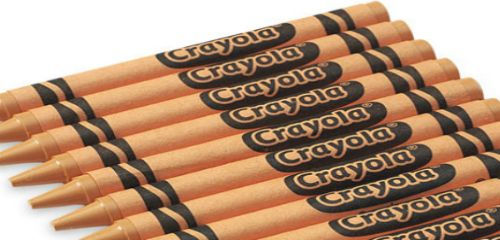Recognizing and Accepting White Privilege
- briancrusch
- May 20, 2020
- 3 min read
Updated: Aug 4, 2021
“All the white people in the room, raise your hand.” As I sat in a classroom at on Valencia College campus, I looked around as I and the other caucasians or predominantly caucasian people timidly raised their hand, fearing what was going to come out of the mouth Nyaniso Tutu, the teenaged granddaughter of Archbishop Desmond Tutu. “You all have ‘white privilege’. This isn’t a bad thing, you need to use it to make this world a better place.”
At the Desmond Tutu Peace Foundation I launched the Peace3 program on college campuses from Florida to California. With the young Ms. Tutu helping to lead the discussion, the focus of our recent “Conversations on Peace” has been on race and privilege, and it has gotten me to thinking about what this means.
There are many types of privilege and I am realizing that white privilege is actually something that is hardest to explain to those of us who actually have it. I remember thinking, “ If I look at my own life, my mother raised four boys on $18,000 a year - how is that being born into privilege?” The reality is, white privilege has nothing at all to do with your socio-economic status. White privilege is something that is so deeply ingrained into our society, that for many of us, it can be difficult to recognize.
Think about Band-Aids. For me, when I put a Band-Aid on, the color is generally an approximation of my skin tone. But what about our non-white friends who get paper cuts?

When you think of the color “nude”, what color comes to mind? More than likely it is some version of light tan or beige. The assumption that lingerie or nylons should be similar to the skin tone of a white person is not overt racism, but it does qualify as a type of micro-aggression that people of color are faced with every day.
Imagine going into a Walgreen’s to buy shampoo. For me and many people I know, we would go to the aisle that says “Shampoo”. Not so simple for people of color. They have a special ethnic section, that may or may not be in the vicinity of the regular shampoo aisle, for “ethnic hair care”.
But to really look at white privilege we can just observe this: As white people, we don’t need to prove that we are one of the “good ones”. I got pulled over in the downtown area of a Florida city a few weeks ago because my tag light was out. The officer (a hispanic man) called me “sir” and actually apologized to me for the inconvenience. At no point whatsoever did I feel he doubted my innocence. When I go into a department store, I am not followed around to make sure I am not shoplifting. When I am visiting a new city, I can just walk into any luxury hotel to use the restroom and no one even looks up to question whether or not I belong.
The fact is, I don’t get to choose whether or not I benefit from white privilege - society has already been set up so that white privilege is automatically granted to me.
I was inspired when Nyaniso spoke to how we, none of us, are color blind. When we pretend not to see race, that just means we have been living in a bubble where we haven’t had to. It is only by recognizing that we are all different, and celebrating those differences, that we are able to have these conversations. When you look at me, you see a white man and I have to recognize and even embrace the privilege that comes along with that. And then I need to use that white privilege to do my part to make this world a better place.







Comments